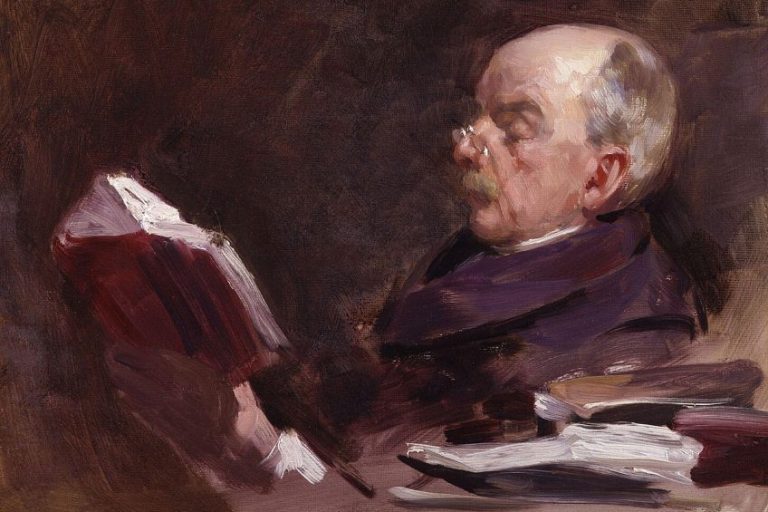Truism Examples – Discover Facts That Are Undeniable
There are many things in this world that are either simply true or taken for granted in some or another sense. That is why we are going to examine the concept of the truism today. We are going to have a look at some famous truisms in this article, alongside a definition of truisms in general and other ideas that surround this concept. If you wish to learn about a number of truism examples, you’re in the right place. Keep reading to learn more about common truisms and why they have come to be accepted.
A Look at Truism Examples
Today, we are going to have a look at a few truism examples to understand what they are and how they are used. So, what are truisms? These are ideas that are taken as entirely self-evident and so they do not require additional elaboration or argumentation. They are simply taken as fact, and they are also generally sayings. However, let’s have a deeper look.

The Definition of a Truism
When it comes to the actual definition of a truism, we need to understand its place as a kind of common expression. Truism examples are statements that are often very well-known, and they provide us with information that we simply take for granted. This does not mean that we cannot argue against a truism, but rather that it is something we have generally decided is correct in general terms.
For instance, a famous truism example is something like: “Money can’t buy happiness”.
We take this kind of idea for granted. There is no need to explain because we typically agree with them. However, we can obviously argue over the idea or the semantics of these truism examples. In addition to this, many examples of truisms also imply a kind of pointlessness in arguing against them. They are simply correct, and so even stating them is somewhat purposeless. So, truisms are an interesting thing for further discussion.
Types of Truisms
While truisms are a class all on their own, it can also be argued that some other concepts can fall under the general category of truisms. For instance, the cliché is a type of statement that has been said to such an extent that it has come to be so typical that it has lost its original meaning, and many truism examples double as cliches.

Other types include things like platitudes, which are mostly empty and hollow statements meant to be comforting like “he’s in a better place”. Others are concepts like bromides, which are obvious statements or remarks that do not actually offer any help, and also aphorisms can often be truisms. However, aphorisms can have more meaning than truism examples in general.
The Use of Truisms in Literature
The use of truisms in literature is an interesting thing. There are multitudinous reasons that someone, like a writer, might be interested in making use of truisms in some way. For instance, a poem might make use of a truism to encourage some specific way of thinking. Imagine a poem that opens with a truism, and then that truism can either be reinforced or critiqued over the course of the poem. This allows for the affirmation or rejection of commonly accepted knowledge.
Furthermore, truism examples can be found in prose texts. They can be used for characterization because a character who uses truisms could indicate something about that character. For instance, a character who uses many truisms may not have many original thoughts of their own.
These kinds of ideas can be useful as a means to reinforce certain concepts or communicate some theory.

However, there is an association with truism examples and a certain degree of laziness. They are commonly used expressions that many people use, but this also indicates that they don’t require much thought to use. They are simply taken for granted and so you do not need to argue them in any sense. So, common truisms can be found in literature, but their place in literature can vary immensely. What does the use of a truism say about a person? What does it mean when someone accepts or rejects a truism? These are the kinds of questions that one can ask when examining the use of examples of truisms in literature and beyond.
Truisms Versus a Priori Knowledge
There is not much comparison between a priori knowledge and truisms, but there is an interesting possible point to be made here. The idea behind a priori knowledge is one rooted in philosophy. This refers to knowledge that is acquired independently. This means that it was not acquired through any kind of experience. This means that you did not need to learn knowledge of this variety. For instance, it can be argued that us knowing the external world exists is a kind of a priori knowledge.
We did not require anyone to tell us about it; we simply know it to be true.
So, while there are many diverse differences when it comes to a comparison of these two concepts, there is a certain relationship between them. A truism is something we take as self-evident. It may have been learned, but it requires no argument to be taken as true (even if it can be argued to not be true in some or another sense).
Examples of Truisms
There are a great many truisms in this world but let’s have a look at a number of famous truisms. We will not explain them because, as we have discussed, they are generally considered to be self-evident truths in some way. So, here is a list of some of the most famous truism examples in the English language:
- Life isn’t fair.
- Success breeds success.
- The apple doesn’t fall far from the tree.
- Patience is a virtue.
- It is what it is.
- You must be a friend to make a friend.
- You are responsible for your own success and your own failure.
- Everything happens for a reason.
- It’s the journey, not the destination, that matters.
- Money can’t buy happiness.
- The rich get richer while the poor get poorer.
While this has been a short list of the many truism examples out there, there are many more of these kinds of sayings and ideas that have not been listed here. This is simply a brief array of some of the most famous truisms. One could even create one’s own truisms. There’s nothing stopping you, after all! And they can be beneficial for quickly communicating ideas even if those ideas are often flawed.

Before we proceed to the next section of this discussion, it is worth quickly discussing something to do with the actual truthfulness of truisms. Take a truism like “money can’t buy happiness” as an example here. This is self-evidently true as money cannot buy an emotion, just as money cannot buy sadness, anxiety, or tiredness. However, money can buy the material possessions used to live a safer and more comfortable life, and this may better facilitate happiness. So, a truism is generally something “true” but often in a semantic sense that renders it somewhat misleading at times.
This should be kept in mind when using truisms as they can often be used as a means of disguising and justifying the status quo.
The Opposite of a Truism
We have already had a look at a number of examples of truisms, but what about the opposite of a truism? If a truism is the idea of something that is seemingly self-evident, what about something entirely antithetical to that? One could argue that the opposite of this concept would be a fallacy. These are concepts that are, essentially, false yet consistently believed and used in unsound arguments.

A fallacy is also a term that is often associated with more academic discussions as logical fallacies are some of the best-known of this type of concept. For instance, a logical fallacy can be something like an appeal to authority. This is where you claim that because someone is an authority on something, what they say is automatically correct if you appropriate it in your argument. This can be considered to be something of a counterpoint to the famous truisms we have discussed above.
Humans tend to be obsessed with what we can deem as correct and incorrect, and common truisms are some of the ways in which we attempt to express this. These expressions, which have often become common sayings, are a great example of the way that humans have a penchant for short and sweet nuggets of wisdom that can be remembered. This has only been a brief discussion of some truism examples, but, hopefully, it has given you a chance to think of your own truisms.
Frequently Asked Questions
What Is a Truism?
This is a term that refers to a kind of factual statement. The idea is that a truism is some kind of a statement or phrase that is self-evident, and therefore obviously true. It is also often something that is considered to be so obvious that there is no real point in saying it at all. It is obviously true, so why waste time discussing it?
What Are Some Examples of Truisms?
There are many famous truisms out there, and some of the most famous include ideas like money doesn’t buy happiness, life isn’t fair, and the apple never falls far from the tree. These kinds of common truisms have become immensely famous sayings in their own right, and they are typically known by everyone familiar with the English language. However, these truism examples, and others, are found in all languages, albeit in different forms.
How Are Truisms Used in Literature?
Truisms can be used in literature in a number of ways. For instance, they could be evoked to present either an obvious idea or as a means of challenging the truism in question. They can also be used for characters to show the way they think. They can also often be evoked as a means of appearing wise in some way, often by creating some new kind of truism that appears obvious once stated.
What Is the Opposite of a Truism?
While a truism is a concept that refers to something self-evidently true, the fallacy is something that is false. This concept refers to something that is often used but is an incorrect or misleading idea. For instance, the slippery slope fallacy refers to the idea that if something has happened, it is bound to lead to worse things happening, and it will spiral and get worse as it rolls down the metaphorical slippery slope. Fallacies, like truisms, are also often taken to be true until their existence as a fallacy is pointed out.
What Is the Difference Between a Priori Knowledge and a Truism?
The concept of a priori knowledge is a philosophical one that refers to knowledge that has been acquired entirely independent of experience, for instance, we all know mathematics can be found in the world, such as the existence of shapes and how they fit into our world. So, it is significantly different from a truism, which is self-evident information, but the relationship between them can be noted as an interesting one.
Justin van Huyssteen is a freelance writer, novelist, and academic originally from Cape Town, South Africa. At present, he has a bachelor’s degree in English and literary theory and an honor’s degree in literary theory. He is currently working towards his master’s degree in literary theory with a focus on animal studies, critical theory, and semiotics within literature. As a novelist and freelancer, he often writes under the pen name L.C. Lupus.
Justin’s preferred literary movements include modern and postmodern literature with literary fiction and genre fiction like sci-fi, post-apocalyptic, and horror being of particular interest. His academia extends to his interest in prose and narratology. He enjoys analyzing a variety of mediums through a literary lens, such as graphic novels, film, and video games.
Justin is working for artincontext.org as an author and content writer since 2022. He is responsible for all blog posts about architecture, literature and poetry.
Learn more about Justin van Huyssteen and the Art in Context Team.
Cite this Article
Justin, van Huyssteen, “Truism Examples – Discover Facts That Are Undeniable.” Art in Context. November 28, 2023. URL: https://artincontext.org/truism-examples/
van Huyssteen, J. (2023, 28 November). Truism Examples – Discover Facts That Are Undeniable. Art in Context. https://artincontext.org/truism-examples/
van Huyssteen, Justin. “Truism Examples – Discover Facts That Are Undeniable.” Art in Context, November 28, 2023. https://artincontext.org/truism-examples/.









